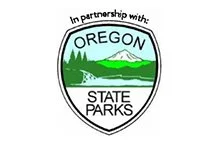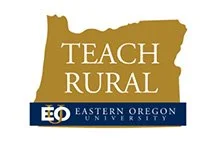A PROJECT LED THROUGH THE REV
Cottonwood Canyon Teacher Institute (CCTI)
Cottonwood Canyon Teacher Institute is a partnership between the Eastern Oregon University College of Education, the Region 18 Wallowa ESD, Teach Rural Oregon and the Rural Engagement & Vitality Center with grant support from the Oregon Department of Education based on grant initiative and funding recommendation from the Educator Advancement Council.
Are you a high school student interested in an experience of learning while living in the outdoors?
Learn about our program for you: Cottonwood Crossing Summer Institute.
When: June 22-25, 2025
Where: Cottonwood Canyon State Park
The Cottonwood Canyon Teacher Institute is an intensive four-day long residential place-based field studies program for teachers from throughout Oregon. Participants choose from four course options where they learn about locally significant cultural or natural resources. Projects are led by EOU faculty, and other regional professionals.
During this week you will engage in hands-on learning through three projects – engineering design, water quality studies, and storytelling. Our program is focused on technical skills and projects that you can use with your students and also encourages collaborative time with your colleagues to identify and problem-solve challenges you’ll face in the classroom during implementation.
Teachers who attend receive a stipend and Professional Development Units.
Cottonwood Canyon State Park is located in north central Oregon. The park’s 8,000-plus acres are open for exploring, stargazing and contemplating the elemental forces that carved its unique landscape.
Cottonwood Canyon Teacher Institute Team
-

Eric Carlson
Eric is REV’s program manager and coordinates the Cottonwood Canyon Teacher Institute.
He is a born and raised Oregonian, originally from Burns. He received an associate’s degree of forest resource technology from Central Oregon Community College.
A self-described tree nerd, Eric worked as a forester for about 10 years before joining REV. During this time he gained valuable project management skills, and experience collaborating with different natural resource agencies.
Eric loves anything outdoors and is excited to use his passions to REV as the project manager. He is excited to bring the experience he has outdoors to the Get Outside After School Activities Program (GO-ASAP) and Cottonwood Crossing Student Institute and Cottonwood Canyon Teaching Institute.
During Eric’s days off you will probably find him out on one of the many beautiful hiking trails in the Pacific Northwest.
-

Shaun Cain
EOU Professor of Biology at the College of STM & Health Science
Course: Neuroscience - Nature’s Navigation
Students will learn how the invertebrate nervous system combines multiple sensory cues, including Earth’s magnetic fields, into a complex hierarchy of signals that can direct and guide navigational tasks. Fieldwork will include collecting samples and examining invertebrate behavior under a microscope.
-

Christine Longjohn
Christine Longjohn is a Navajo Riparian Ecologist, who is working for The Confederated Tribes of Warm Springs as a Fisheries Biologist.
She is from Utah and has worked in the Pacific Northwest with the Tribes and the Forest Service. She has been a part of restoration projects in the John Day Basin and is currently working on Salmon monitoring programs in the Hood River Basin. An avid fly fisher, Christine has a passion for our watershed health.
Course: River Dynamics and Macroinvertebrate Identification
A Study of Macroinvertebrates and MicrobesStudents will learn the changing dynamics along the John Day River with some historical, cultural, and present-day challenges. Which some of the impacts are from climate change, development, agriculture, and invasive species. The field project will include the sampling of macroinvertebrates along a reach on the John Day River and how to identify them to order or families. Students will learn to process a small study of biodiversity integrity and how they are impacted with changing watershed dynamics. This will also be integrated into identification for fishing techniques as a fly fisher.














